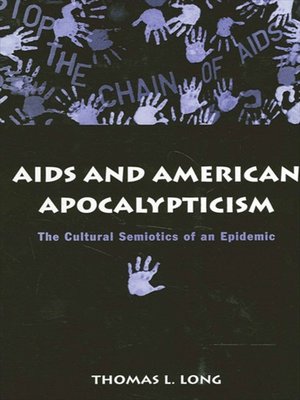AIDS and American Apocalypticism
ebook ∣ The Cultural Semiotics of an Epidemic · SUNY series in the Sociology of Culture
By Thomas Lawrence Long

Sign up to save your library
With an OverDrive account, you can save your favorite libraries for at-a-glance information about availability. Find out more about OverDrive accounts.
Find this title in Libby, the library reading app by OverDrive.



Search for a digital library with this title
Title found at these libraries:
| Library Name | Distance |
|---|---|
| Loading... |
Looks at how both anti-gay and AIDS activists use apocalyptic language to describe the AIDS crisis.
Since public discourse about AIDS began in 1981, it has characterized AIDS as an apocalyptic plague: a punishment for sin and a sign of the end of the world. Christian fundamentalists had already configured the gay male population most visibly affected by AIDS as apocalyptic signifiers or signs of the "end times." Their discourse grew out of a centuries-old American apocalypticism that included images of crisis, destruction, and ultimate renewal. In this book, Thomas L. Long examines the ways in which gay and AIDS activists, artists, writers, scientists, and journalists appropriated this apocalyptic rhetoric in order to mobilize attention to the medical crisis, prevent the spread of the disease, and treat the HIV infected.
Using the analytical tools of literary analysis, cultural studies, performance theory, and social semiotics, AIDS and American Apocalypticism examines many kinds of discourse, including fiction, drama, performance art, demonstration graphics and brochures, biomedical publications, and journalism and shows that, while initially useful, the effects of apocalyptic rhetoric in the long term are dangerous. Among the important figures in AIDS activism and the arts discussed are David Drake, Tim Miller, Sarah Schulman, and Tony Kushner, as well as the organizations ACT UP and Lesbian Avengers.







